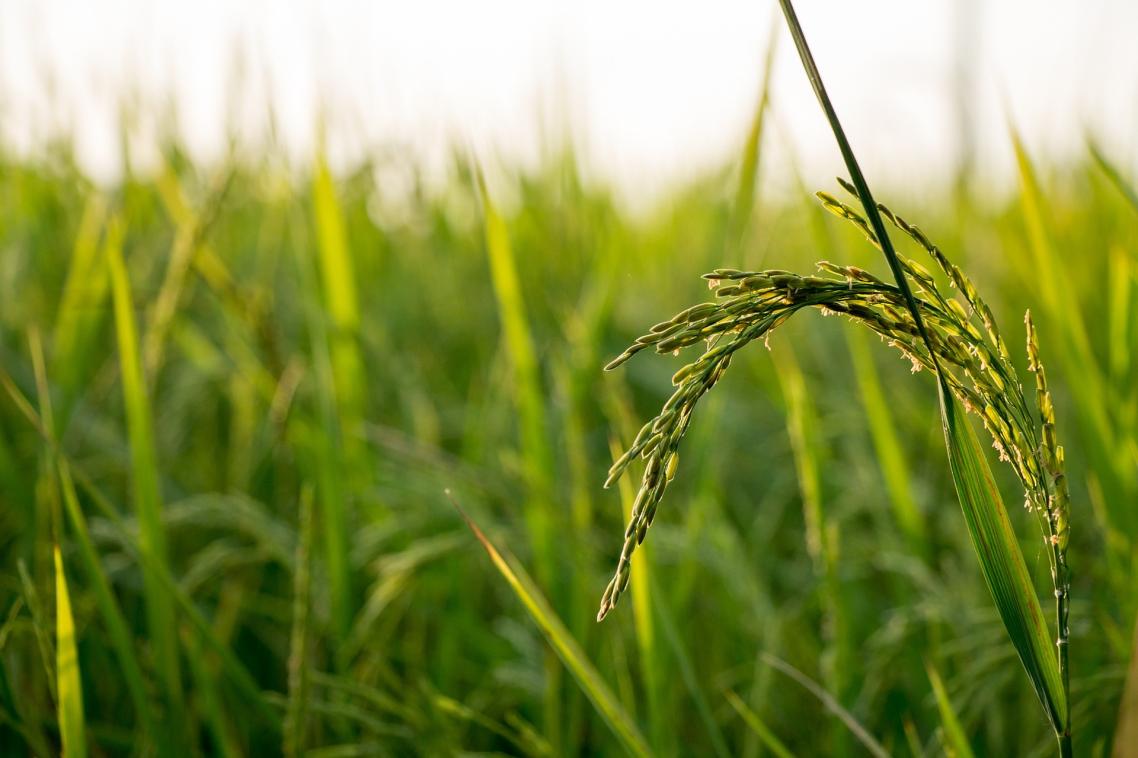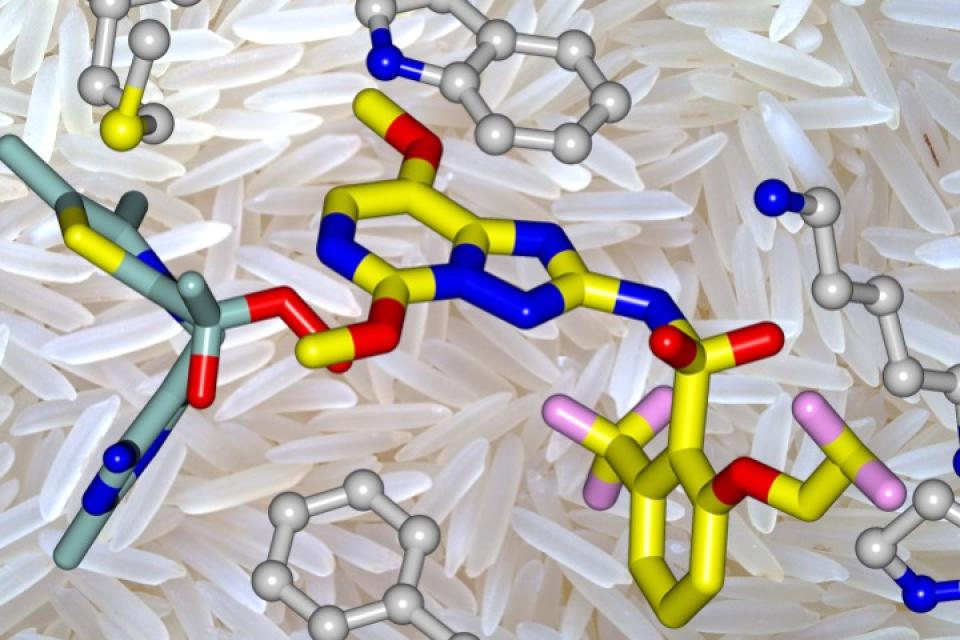Problems with herbicide-resistant weeds become crystal clear

Herbicide-resistant weeds are threatening food security, but University of Queensland researchers are one step closer to a solution after a new discovery.
A UQ School of Chemistry and Molecular Biosciences study led by Associate Professor Luke Guddat uncovered how penoxsulam, the active ingredient in the world’s largest-selling rice herbicide, works.
“Penoxsulam controls weeds such as key grass, broadleaf and sedge, and has become a focus of research due to an increased number of weeds that have developed resistance to herbicides,” Dr Guddat said.
“Understanding how it works will assist in managing herbicide resistance not only for rice growers but also for wheat, turf and wine producers globally.
“These compounds have been shown to have extremely low levels of toxicity to the environment.”
The researchers hope the discovery will contribute to the design of the next generation of safe and commercially effective herbicides to counter the growing number of weeds becoming resistant.

The research conducted by Dr Thierry Lonhienne and PhD student Mario Garcia used crystallographic studies, which show the precise structure of molecules at incredibly high resolutions, enabling them to capture the molecular mechanisms of the herbicide in action.
Dr Guddat said the team discovered penoxsulam combined with an enzyme in the weed and prevented it from carrying out its normal function - to produce amino acids, which are the fundamental building blocks of proteins.
“Luckily, humans and other animals don’t have that enzyme so penoxsulam compounds are relatively safe at the concentrations used in field applications.”
The study, published in PNAS (doi: 10.1073/pnas.1714392115), was funded by the National Health and Medical Research Council.
Dr Guddat and UQ colleagues Professor Craig Williams and Professor Gimme Walter have now been awarded funding to study weed-resistant herbicides to combat weeds of significance in Australia.
Image caption: Penoxsulam, in yellow, binds to the surface of the enzyme (acetohydroxyacid synthase). Penoxsulam is a leading herbicide for crop protection especially for rice (background) and wheat. Courtesy the research team.
Media: Associate Professor Luke Guddat, luke.guddat@uq.edu.au, +61 7 336 53549 or Dr Thierry Lonhienne, t.lonhienne@uq.edu.au, +61 7 336 59175.
Related articles

Decades of surveys show whale migration shift

Should you consent to your doctor using an AI scribe? Here’s what you should know.
Media contact
UQ Communications
communications@uq.edu.au
+61 429 056 139
